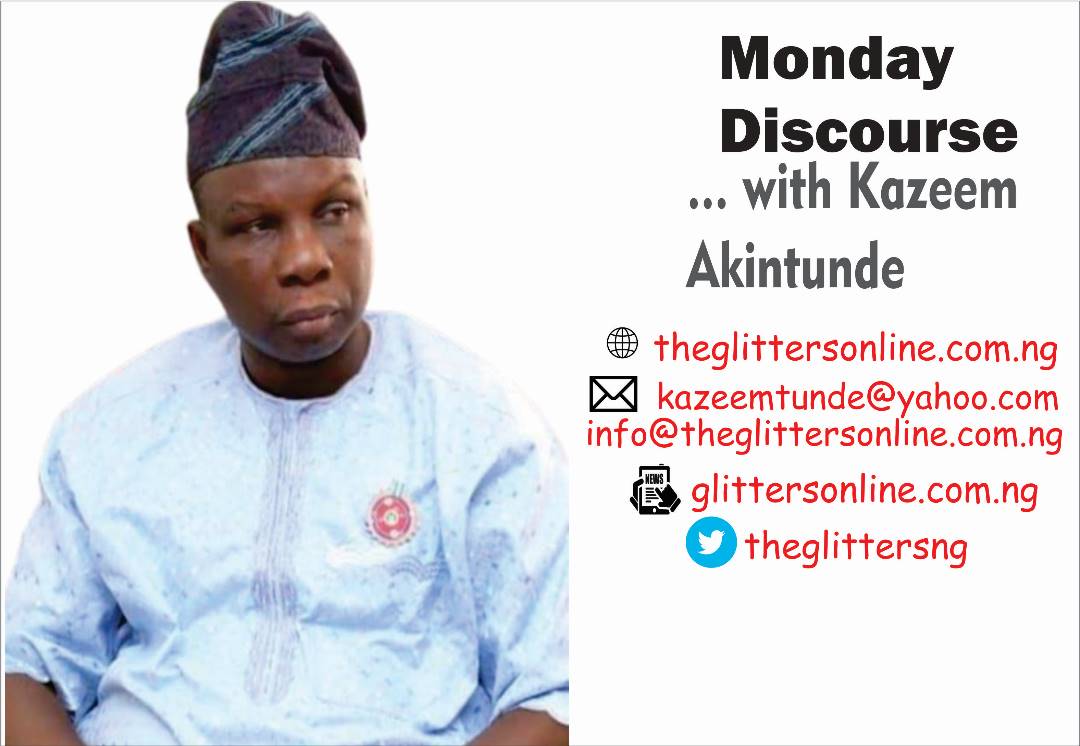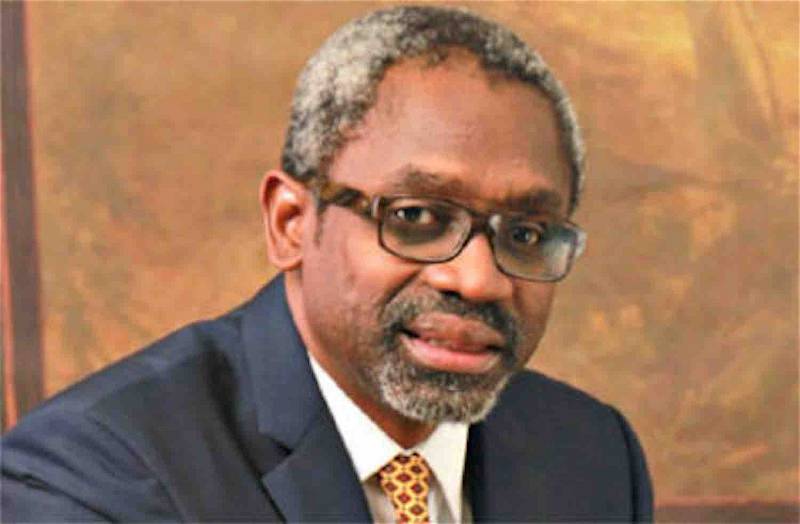Buhari’s Eight-Year Rule: A Postscript (3)
By Kazeem Akintunde
Today, May 29th, 2023, the eight-year rule of President Muhammadu Buhari finally comes to an end. In the next few hours, his nomenclature will change as he would now be known and addressed as a former president of Nigeria. From 10 a. m. this morning, the man from Daura in Katsina will finally hand over Nigeria to a Bola Ahmed Tinubu. The eight-year contract he had with Nigeria would be finally over. Like being in a turbulent marriage, Buhari got tired of presiding over the entity called Nigeria. The over 200 million people of this country made life ‘difficult’ for the retired Army General, who has vowed to permanently retire to his hometown to tend to his cattle.
He is also on record to have jokingly said that if Nigerians won’t allow him to rest in Daura, he is ready to move to Niger Republic where his other brothers are willing to host him. The extension of the Railway line infrastructure and other social amenities to Maradi, Niger Republic, is now fully understood.
As he expressed being tired of the burden associated with leading Africa’s most populous nation, many Nigerians have also, been happy counting down till this day, to see him out of Aso Rock, the seat of power. That they are tired of his style of leadership, worsening insecurity, and the dwindling fortunes that has been their lot in the last eight years is putting it mildly. It will be correct to say that since the announcement of Bola Ahmed Tinubu, commonly referred to as BAT by his supporters as the President-elect following the presidential election in February by INEC, the focus of the people has gradually shifted from Buhari to his successor, and how he intends to make life more meaningful for them.
Make no mistake about it, Tinubu’s road in the next four years will definitely be rough (apologies to the late Dr. Tai Solarin). There will be more write-ups on Tinubu and his government in subsequent editions of this column. The focus of today’s Discourse, will not be on Tinubu as he should at least be given his moment of glory and a grace period for ‘honeymoon’, although I doubt if it would be up to a month before Nigerians start asking critical questions about his government.
Today, we would be examining the eight-year rule of Buhari, his contributions to Nigeria’s development, and the legacies he is leaving behind.
As previously highlighted in the previous two editions of this column, Buhari came to power on a huge popularity built over the years as a strict military leader with a spartan lifestyle and someone who hated corruption and indiscipline. These attributes endeared him to the Talakawas in the North, who stood by him through thick and thin. A former military head of state, many are of the view that he sought office in order to right the wrongs noticed in his first coming as a military leader and that he has the magic wand to steer the ship of the nation onto a glorious path. Politicians in the South also warmed up to him and when the time came for an alliance, it wasn’t difficult for him to be positioned for the Presidency in 2015.
His weaknesses were not known to many, or they were masked by those who knew, but packaged him for Nigerians as the messiah Nigeria needed during the build-up to the 2015 general elections. Those weaknesses were however known to some of his colleagues in the military, which was essentially why he was removed in a palace coup by his colleagues in 1985. Buhari as a leader, knows little or next to nothing about leadership, particularly in a multi-ethnic nation like Nigeria. He also couldn’t take the tough decisions expected of a leader.
In his first coming as a military Head of State, he knew that some of his colleagues were planning a coup against his government but was not bothered and carried on as if nothing was amiss. The late Tunde Idiagbon, his then Deputy was more concerned about his pilgrimage to Saudi Arabia, and postponed taking any action until when he would return to the country. But by the time he returned, the boys had struck and he was quickly arrested and locked up in prison.
The same indecision manifested throughout his second coming as civilian President in 2015. Buhari did not appoint ministers that would work with him for almost six months after he was sworn in. He told Nigerians that he was taking briefings from Permanent Secretaries and that those to be appointed would be the best for the country. Many who had thought that he would hit the ground running were left disappointed. By the time the names were eventually released, 80 per cent of those that made it to the cabinet were those that many Nigerians were sure of being on the team, making them livid by the needless wait.
Again, Buhari surrounded himself with friends from only his ethnic stock to the extent that other geo-political zones in the country felt ostracized. His nepotism stank to high heavens throughout his two terms as President. Again, his leadership style was one that gave responsibility to subordinates without questions asked nor performance monitored.
This was rightly noted by Raji Fashola, his Minister of Works and Housing, who stated that Buhari’s leadership style was one that delegated authority to subordinates without monitoring or asking questions believing that those assigned would deliver on their mandates. This is a weak leadership style unfit for the 21st century. As a leader, the buck stops at your table and you must constantly ask questions and monitor whatever your subordinates do. His style of administration created gaps which some of his Ministers exploited to do whatever they liked. Buhari also lacked the balls to fire non-performing Ministers and other Heads of government agencies who performed below par. Except where it became glaring that some Ministers had to go either due to glaring cases of corruption or incompetence, Buhari did not touch many of his Ministers.
Again, round pegs were not fitted in round holes. People like his Education Minister, Adamu Adamu should be forgiven when he said that he knew next to nothing about the education sector but Buhari made him a Minister in charge of such a sensitive portfolio. It therefore shouldn’t have come as a surprise to Nigerians that the Academic Staff Union of Universities (ASUU) went on strike for eight months without both Adamu and Buhari knowing how to resolve the logjam.
In the absence of effective leadership, a tiny cabal soon emerged to take charge of the administration. A kitchen cabinet of the trio of the late Abba Kyari, Mamman Daura, and the late Isa Funtua became so powerful that they were effectively in charge of the country until death took away Kyari and Funtua. Daura, on his own, was sacked by the then-acting President Yemi Osinbajo when Buhari traveled out of the country for medical attention and ‘mistakenly’ transmitted power to his Vice. The sacking of Daura, a cousin of the President, ultimately created bad blood between Buhari and Osinbajo and throughout their eight-year tenure, Buhari never again transmitted power to his Vice, even when traveling for his medicals for a long period of time.
Due to his advanced age, Buhari’s travels outside the shores of the country were a huge loss to the nation to the extent that the decision-making process took a longer time and, in most cases, the Nation just drifted on auto-pilot, like sheep without a shepherd. Buhari was not on ground to take decisions and Osinbajo understandably didn’t want to rock the boat again, for even if he wanted to take action, he lacked the political power to do so.
Again, the argument for him to use medical facilities in the country did not bode well with him as he said that he preferred using a particular doctor and hospital in the UK, which he has been using even before he became president, and that he wouldn’t want that to change.
Besides, the First Lady, Aisha Buhari also lamented the poor state of the Aso Rock Clinic, reportedly saying that ordinary paracetamol could not be found in the place. The sting in her tale got those in authority to order the renovation of the clinic and necessary funds were made available for the exercise. The Aso Rock Clinic, now upgraded and equipped with state-of-the-art facilities was commissioned by the President a few weeks ago. A happy Aisha said at the occasion that the clinic now boasts of the needed equipment and that there won’t be the need for the incoming first family to make use of any medical facility outside the country for their healthcare needs.
It is doubtful if Tinubu and his family would take to her counsel however, as the incoming President also has his own health challenges which he is managing. His medical doctors are also not in Nigeria so medical tourism is expected to continue in that regard.
Age was also not on the side of Buhari when he assumed power and this could have hampered his performance on the job. There were instances where Ministers and top government officials could not see him after 4 p.m. once he retired to his residence within the Vila after Asr prayer.
Another noticeable sign of his approach to governance during his administration was taking the backseat and allowing issues to degenerate before taking a decision. One ready example was his handling of the Naira redesign and the Supreme Court ruling on it. With many Nigerians losing their lives daily due to the scarcity of the newly redesigned naira notes, some state governors were forced to approach the Apex Court to adjudicate on whether the CBN and the Federal Government had the power to carry out the exercise without consulting State Governors. They pleaded with the Supreme Court to declare the exercise illegal and to allow the old notes to remain legal tender until the CBN printed enough new notes. The Apex Court ruled in favour of the State Governors, but for the President to direct the CBN Governor to comply with the Supreme Court judgment became a herculean task. It was not until a terse press statement was released by one of the media aides to the President that the CBN Governor eventually complied with the Apex Court’s judgment.
Buhari came to power when insecurity was restricted to certain parts of the country, now it has been fully democratized to the extent that no part of the country is safe again. Many of our compatriots are now looking for ways to leave the country at all costs. The syndrome known as ‘Japa’ gained momentum during this administration to the extent that even those with good sources of income are leaving the country in droves.
Buhari, while speaking in Abuja recently, said that he has run a good race, that he is happy with what he and his team have accomplished, and that it is left for posterity to judge him. His media aide, Femi Adesina, also said that his boss has done well in the last eight years and that very soon, Nigerians will begin to appreciate what he did for the nation. I don’t have any issues with the statements coming from the duo, but I believe that in the fullness of time, the eight-year rule of Buhari would be put into proper perspective. Good bye, MBuhari. Welcome ABAT.
See you next week.



